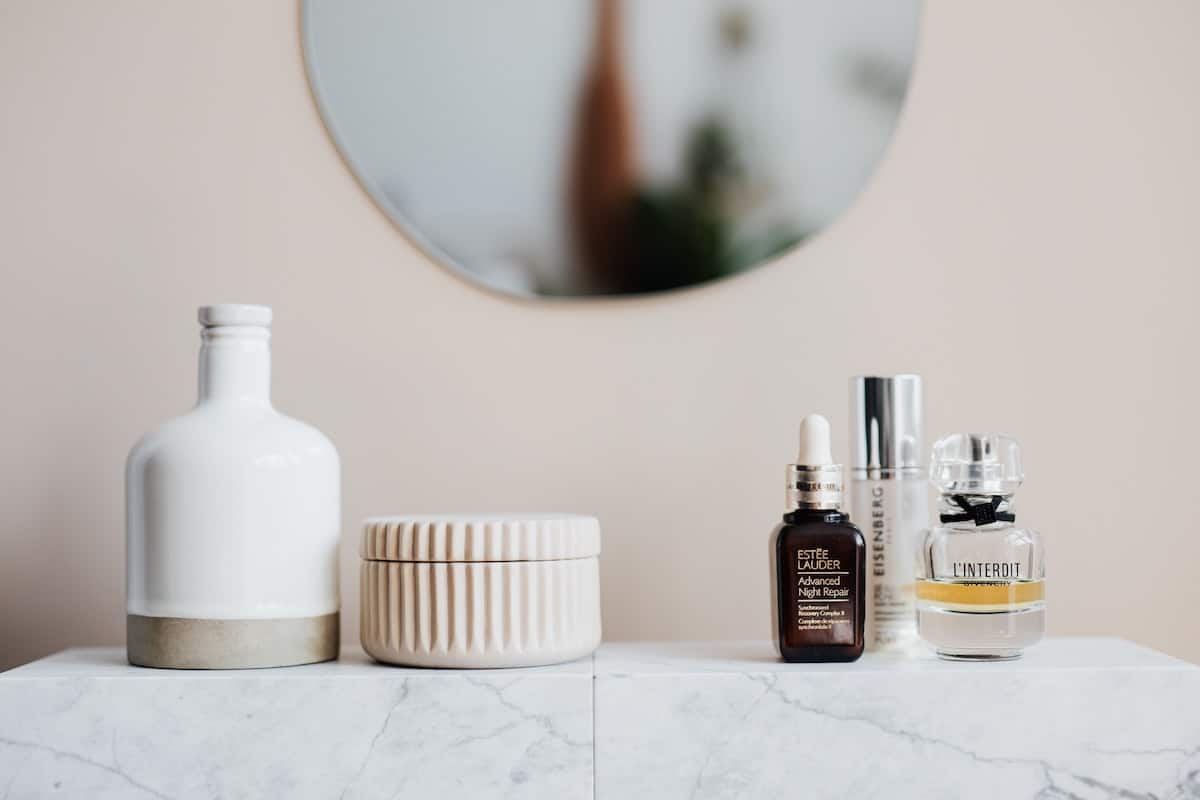Is Perfume Flammable? Here’s What You Should Know!
Perfumes appeal to us in a way very few consumer items can. The moment you sample a scent that speaks to you, you’ll want to acquire it. This is why people get fragrances from different countries, and some store dozens of bottles at a time. But to do so safely, one must know the associated risks, the chief among which is flammability.
Perfume is flammable in most cases because of the alcohol used in its aromatic blending process. Even alcohol substitutes in perfumes can be flammable, so you should assume your fragrance of choice is flammable unless asserted otherwise by the manufacturer.
In this article, you will learn more about alcohol’s role in perfumes and a less flammable alternative. You must know this, so you don’t sacrifice your perfume’s longevity seeking alcohol-free options. Finally, you will learn more about safely storing perfumes.
Are All Perfumes Flammable?
Now that you know that the alcohol in perfumes makes them quite flammable, it is only logical to wonder whether all fragrances can catch fire. In my experience, most perfumes contain alcohol and are flammable to varying degrees. However, that does not mean that you can’t get a fragrance that’s not flammable.
Alcohol-free perfumes and certain organic fragrances do not contain the flammable elements you would find in a regular scent. As a result, these perfumes aren’t highly flammable.
Some might even be packaged as “non-flammable.” Still, you must remember that there’s a reason why most perfumers don’t go the “non-flammable” route: it is hard to craft a good scent without using flammable dissolving and preserving agents.
What Does Alcohol Do in a Perfume?

Now that we have established that alcohol is one of the main reasons perfumes are generally considered flammable liquids, let’s explore why it is almost necessary to have alcohol in your scent. While not all perfumes contain alcohol, even the substitutes function similarly. As you read the functions of alcohol, you must keep in mind that these apply to most replacements, including blending oils.
1. Alcohol Helps Merge Different Aromas
The art of perfume-making relies on three steps: sourcing ingredients, setting proportions, and merging the aromas. It is pretty challenging to combine organic (and even some inorganic) substances to produce a cohesive bouquet. Usually, there’s the odd scent of two different air fresheners sprayed in a single room.
Highly fragrant scents don’t go well together, and that’s also true for aromatic oils that end up being used for individual perfumes. The reason you are offered coffee beans to smell between sampling different scents at a fragrance store is that you don’t want the two aromas “blending” and producing an odd result.
Now that you can see how mixing different perfumes usually leads to sensory disasters, you can appreciate alcohol, which breaks down the ingredients sufficiently for them to merge and produce a single cohesive end-product.
2. Alcohol Helps Diffuse the Aroma
You will realize that alcohol seems to have a contradictory function. While it helps merge the aroma in its liquid form, it elevates and diffuses different notes once it is applied or sprayed. That’s because alcohol evaporates rapidly, making it ideal for perfume application.
You don’t want your scent to smell the same throughout the day: that’s the hallmark of cheap perfume. In fact, most imitation perfumes can perfectly mimic the top notes of expensive perfumes. However, with the proper use of alcohol alongside the right ingredients in correct proportions, the aromatic elements unfold slowly across three distinct phases.
3. Alcohol Acts as a Perfumer’s Canvas
Different aromatic substances dissolve in alcohol to various degrees. This allows the perfumer to produce not just fragrant mixtures but true works of art. An expert can understand how different raw materials will blend together to create a specific scent, and because of alcohol’s absence post-evaporation, the aromatic output begins to vary.
The tradition of perfume-making and a complementary aspect of perfume sampling has led to the expectation of three notes. However, certain perfumes can unfold across six phases, while others can simply have top and bottom notes.
And all of this is possible because of how different ingredients break down to varying extents in a mixing medium like alcohol and evaporate at different rates in the absence of alcohol. Here the medium acts as a preservative as well.
Alcohol Substitutes in Perfumes
After establishing the significance of alcohol as a medium in perfumes, I believe it is only suitable to address the alternatives. If there’s one thing my experience with fragrances has taught me, it is that you’re never out of options.
Sure, the longevity and profile diversity of perfumes might be limited when you look into ones with alcohol substitutes, but you can surely find many scents that aren’t as flammable as the standard fragrance. The liquid ones, despite not using alcohol, are likely still flammable to some extent. That said, such fragrances are pretty safe in that they won’t catch fire that easily.
I have encountered some essential oil mixes positioned as alcohol-free perfumes. For instance, this Jasmine Perfume Oil Roll-on is a prime example of this. What is good about it is that not only is it alcohol-free, it is also free of parabens, phthalates, and sulfates (which are bad for our health!)
Your best bet at finding a non-flammable perfume is to get a solid one. Solid perfumes usually use beeswax, which isn’t flammable and can sidestep the shipping complications that come with general scents.
How to Store Perfumes Safely
Flammable liquids require a lot of care when shipping, and that deserves a post of its own. Most people, however, aren’t interested in self-shipping perfumes and would rather know if storing their favorite fragrance creates a fire hazard. For the most part, perfume packaging is robust, and as long as spillage is avoided, you will keep things from catching fire.
You’ll find that most tips on storing perfumes safely can be considered common sense. But it is easy to overlook these if you’re distracted. That’s why I have prepared the following checklist that will help you ensure that you’re keeping your perfumes in a safe environment.
- Perfumes should be kept away from any storage space in the kitchen.
- Fragrances must not be placed close to an electric outlet.
- Scents should not be placed in unpolished wooden cabinets.
- Do not expose any metal refill containers or glass bottles to direct sunlight.
- Make sure perfume is stored in a relatively cold environment.
When storing more than 24 bottles of perfume, use a fireproof container like SentrySafe Fireproof Box (which costs less than most high-end perfumes).
More Related Topics
- Should Perfume be Sprayed on Skin or Clothes? A Definitive Guide!
- 9 Best Perfumes for a Date! [For Him & Her]
- Deodorant vs Perfume: What’s the Difference? [Complete Guide!]
- Is Perfume a Good Gift? [With Options for Every Occasion!]
- Does Perfume Stain Your Clothes? [With Tips to Avoid the Stains!]
- 13 Reasons Why Your Perfume Fades So Quickly!
Credit to Karolina Grabowska (on Pexels) for the Featured Image of this Article

![Cologne vs Perfume: What’s the Difference? [Complete Guide!]](https://styleuphq.com/wp-content/uploads/2021/02/deanna-alys-xQwRvghauaU-unsplash-1200x800.jpg)
![Does Apple Watch Come with a Band? [Here’s What to Know!]](https://styleuphq.com/wp-content/uploads/2022/05/Apple-Watch-Band--1006x800.webp)
![Is Watch a Good Gift? [Are There Any Superstitions?]](https://styleuphq.com/wp-content/uploads/2022/03/pexels-porapak-apichodilok-360624-1140x800.jpg)

![Does Apple Watch Have a Speaker? [And, What to Do With It!]](https://styleuphq.com/wp-content/uploads/2022/07/image-of-adult-sportswoman-using-smartwatch-while-2022-02-02-03-59-46-utc-1200x800.webp)
![What is a Solid Perfume & How to Use It? [Complete Guide!]](https://styleuphq.com/wp-content/uploads/2021/12/4327174574_9aee54dc58_o-copy-1176x800.webp)